The National Assembly listens to and considers draft laws on the organization of the government and local governments.
On the afternoon of February 12, the National Assembly held a plenary session at Dien Hong Hall to listen to presentations and reports on the draft Law on Government Organization (amended) and the draft Law on Local Government Organization (amended).
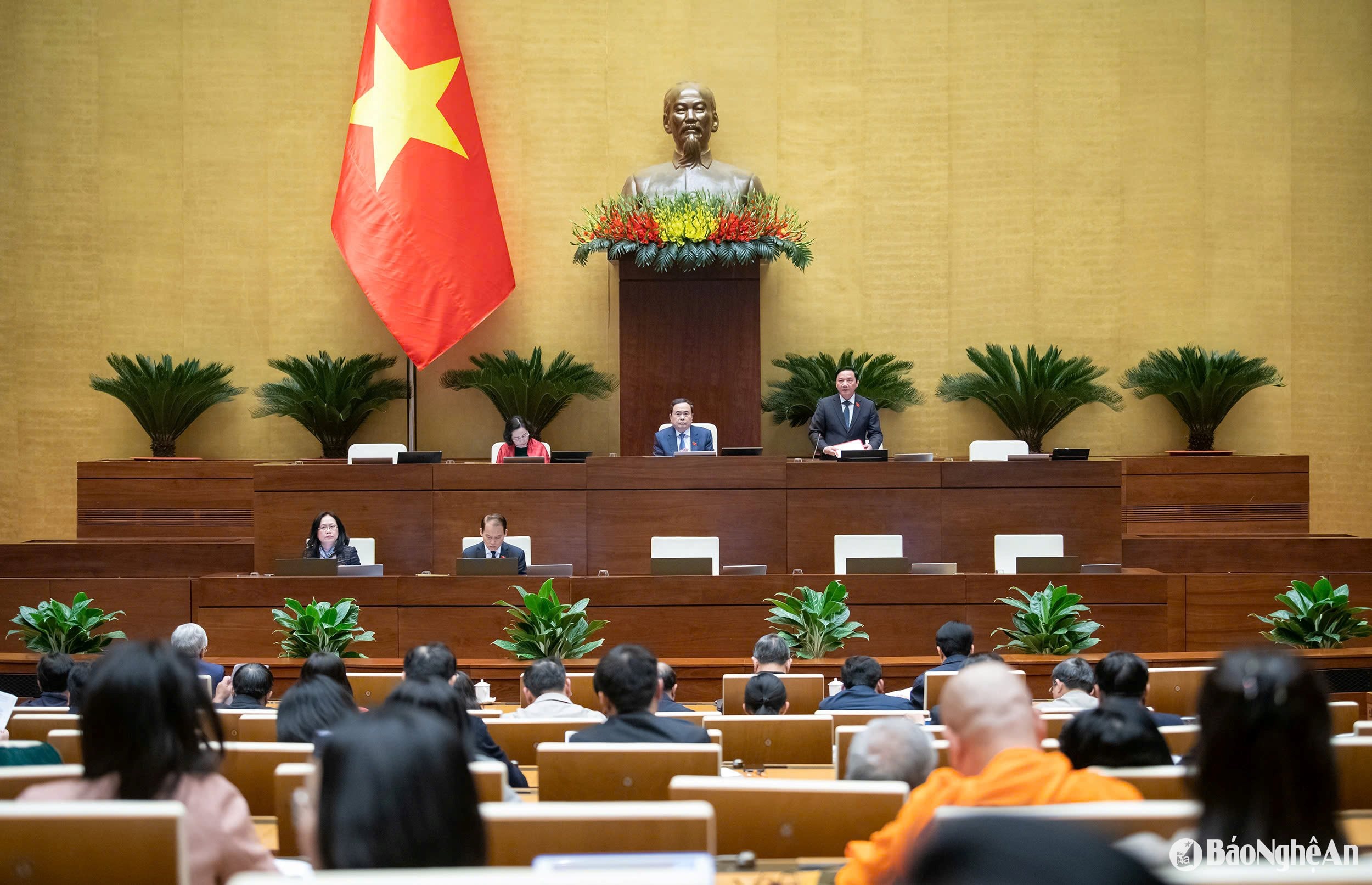
Tpromote the Government to create development
The Draft Law on Government Organization (amended) aims to amend, supplement and perfect the provisions on the principles of organization and operation of the Government; the tasks and powers of the Government, the Prime Minister and members of the Government, creating a legal basis for innovation and reorganization of the State administrative apparatus effectively and efficiently. Promote decentralization and delegation of power, promote the Government to create development, meet the requirements of building and perfecting the socialist rule-of-law State of Vietnam.
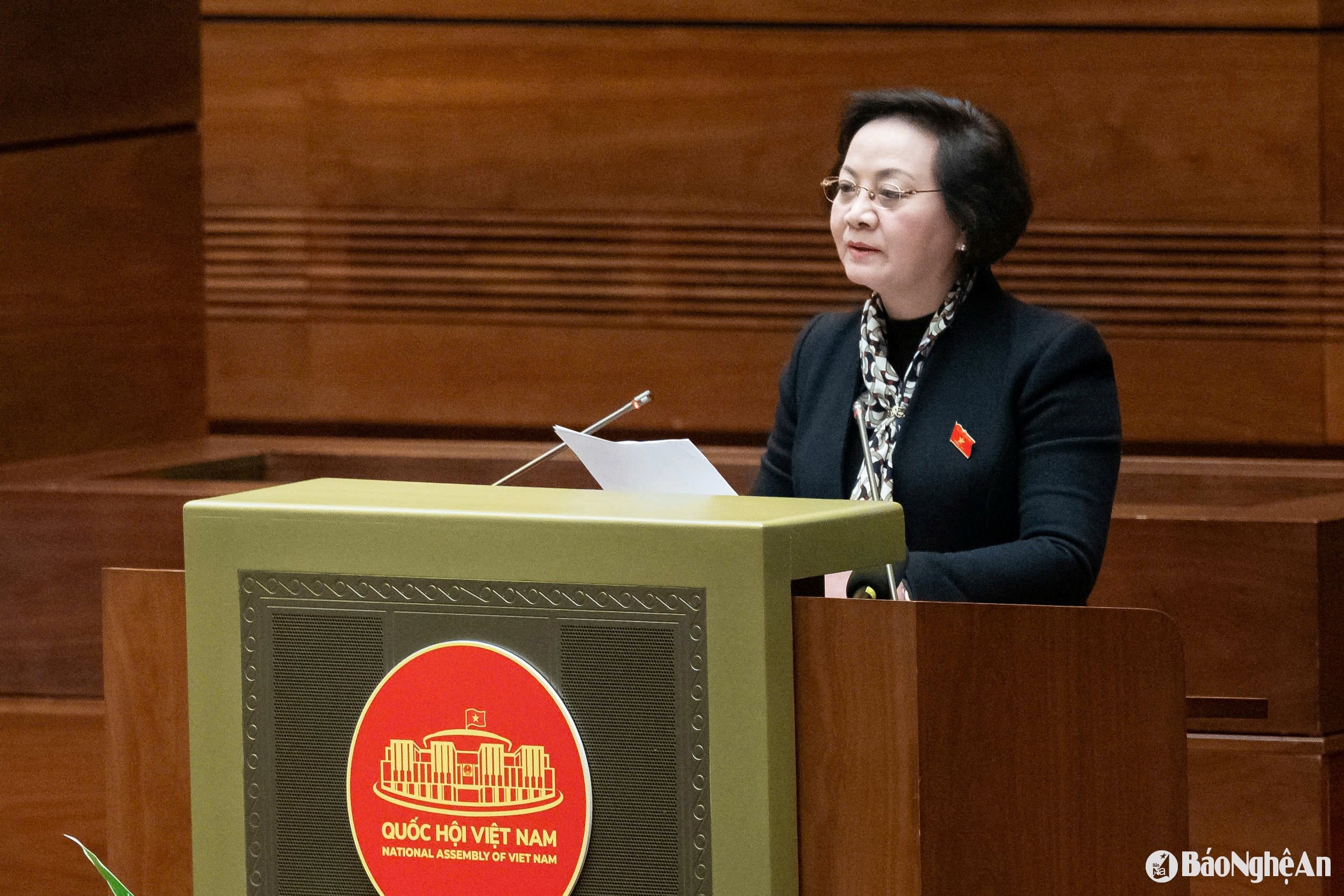
Accordingly, the Draft Law consists of 5 chapters and 32 articles (compared to the current Law, 2 chapters and 18 articles are reduced), ensuring high continuity and generality according to the requirements of law-making innovation of the General Secretary and the National Assembly, ensuring stability and long-term longevity in the legal system.
The content of the draft Law focuses on perfecting the regulations on the tasks and powers of the Government, in which the new point is that the Government unifies state management in all sectors and fields. The Government assigns the scope of state management to ministries and ministerial-level agencies; decentralizes authority to Ministers and Heads of ministerial-level agencies according to the scope of management, ensuring clear division of responsibilities of Ministers and Heads of ministerial-level agencies as members of the Government and heads of ministries and ministerial-level agencies.
.jpg)
In addition, the draft Law has also completed the principled contents on decentralization and delegation of authority between the Government, Prime Minister, Ministers, Heads of ministerial-level agencies and local authorities;...
Pdetermining authority, decentralization, delegation, and authorization between local authorities at all levels
The amendment of the Law on Organization of Local Government aims to implement the Resolution of the 13th National Party Congress, Resolution No. 18-NQ/TW of the 6th Central Conference, 12th tenure and Resolution No. 27-NQ/TW of the 6th Central Conference, 13th tenure.
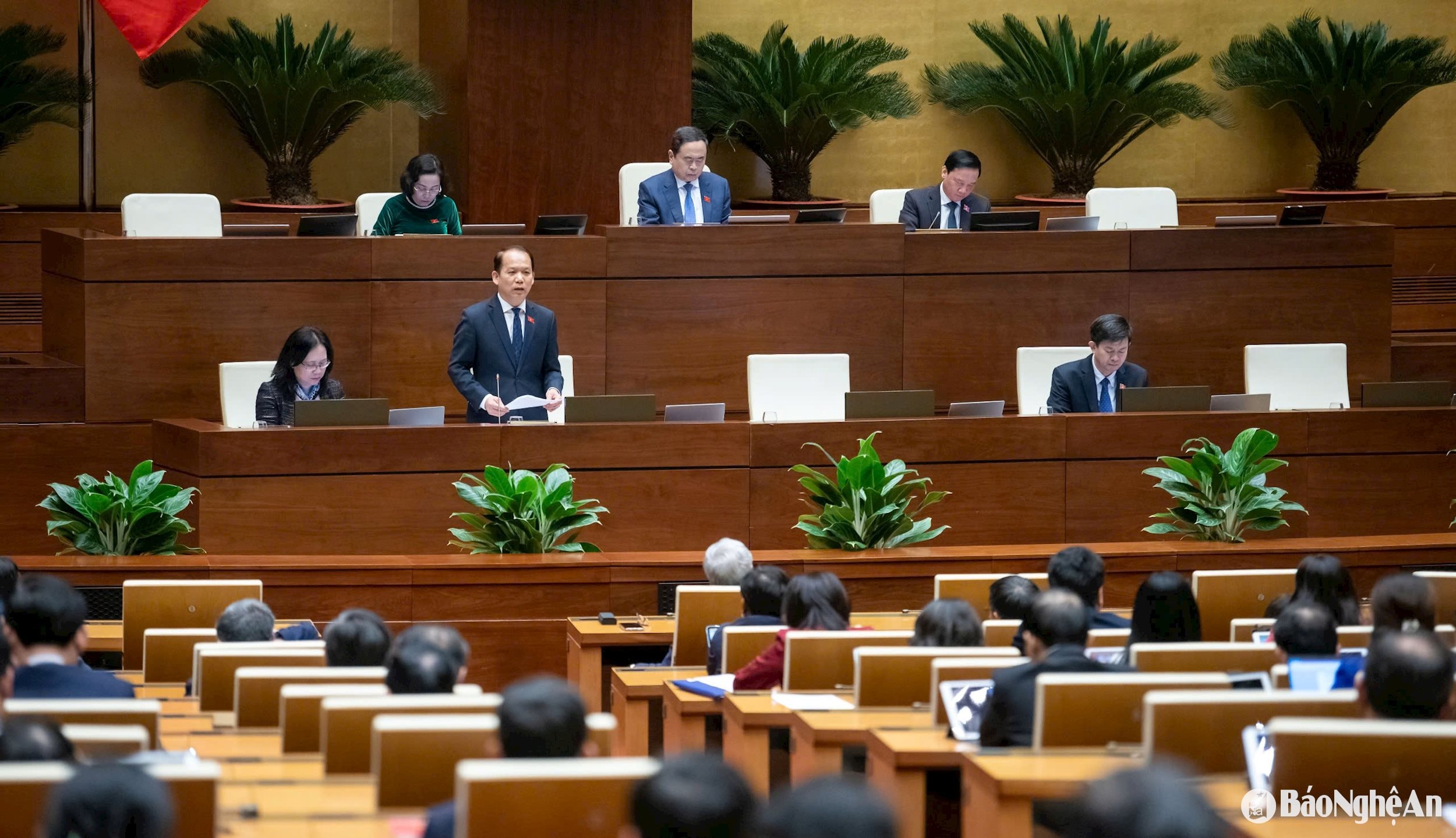
At the same time, fully institutionalize the Party's guiding viewpoints and regulations of the 2013 Constitution to promote decentralization and delegation, creating initiative for local authorities according to the principle of "locality decides, locality acts, locality is responsible".
Ensure that we both inherit relevant regulations and continue to innovate and improve the organization and operation of local governments; overcome limitations, shortcomings and difficulties from the implementation of the Law in recent times. Thoroughly implement the policy of the Central Government and the National Assembly that "The Law only regulates issues of principle and within the authority of the National Assembly" to ensure the stability of the legal system.
.jpg)
The goal is to fundamentally and rationally amend the regulations on the organization and operation of local governments to fully specify the provisions of the 2013 Constitution and institutionalize the policies and orientations in the Party's Documents and Resolutions in order to continue to innovate local governments in the direction of promoting decentralization between state agencies at the central and local levels and between local government levels, streamlining the apparatus, operating effectively and efficiently, ensuring the unity and continuity of the state administration from the central to grassroots levels.
The Draft Law consists of 7 chapters and 50 articles (93 articles less than the current Law) with basic contents on the division of authority, decentralization, delegation of authority between local authorities at all levels. The Draft Law has stipulated a separate chapter on the division of authority, decentralization, delegation of authority between local authorities at all levels, which is the basis for specialized laws to ensure consistency when stipulating the tasks and powers of local authorities and local state agencies in specific sectors and fields.
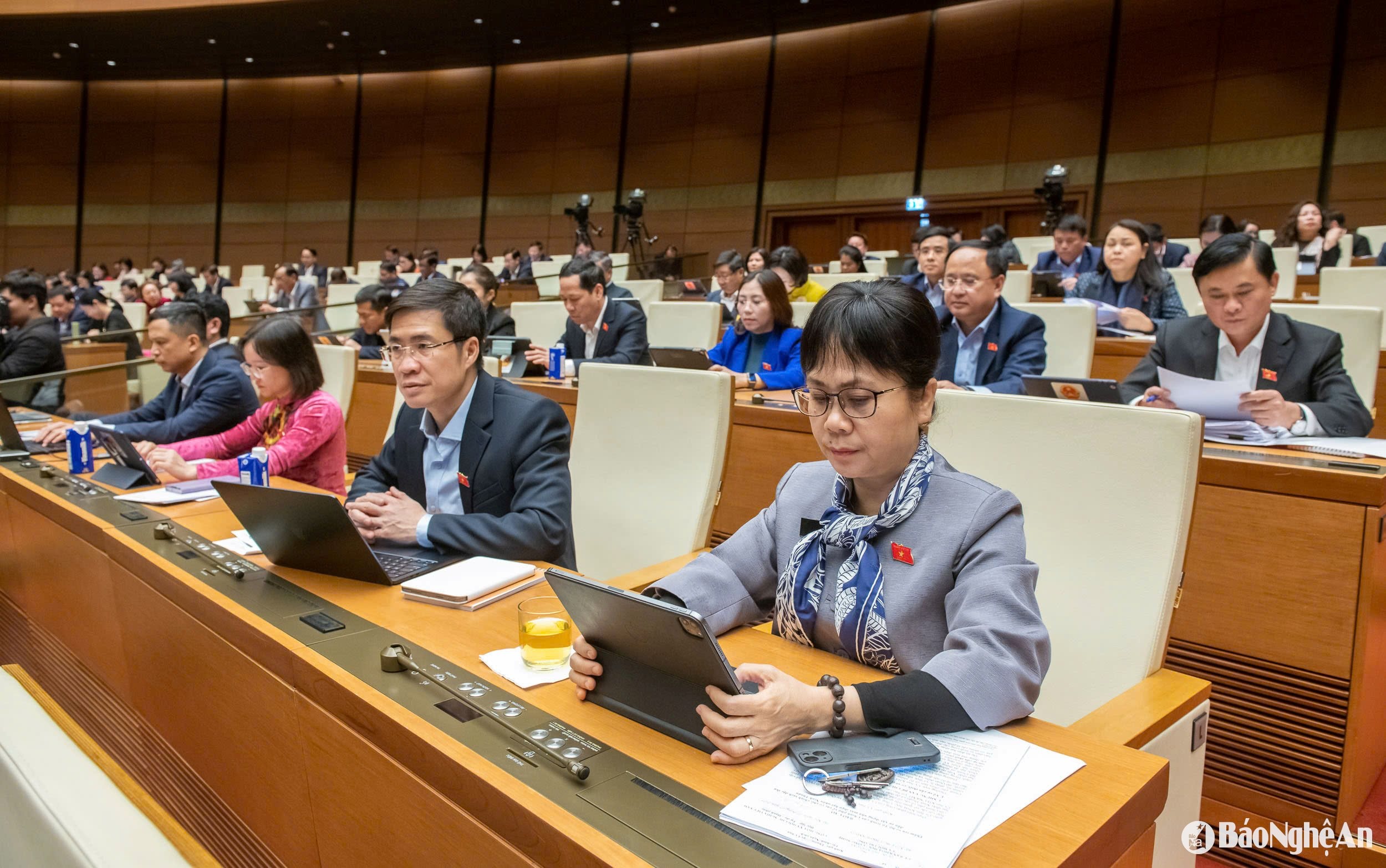
Regarding the local government organization model, the draft Law is revised in the direction of maintaining the local government organization model as in the current Law. Accordingly, at all administrative units at all levels, the local government organization includes the People's Council and the People's Committee, except in specific cases where the National Assembly stipulates that it is not a local government level. This provision is to ensure the continued implementation of the urban government organization in a number of centrally-run cities according to the Capital Law and the Resolutions of the National Assembly.
Regarding the organizational structure and operation of the People's Council and People's Committee at all levels, the draft Law stipulates in the following direction: Stipulating the principles for determining the number of People's Council deputies based on population size, regional characteristics and socio-economic conditions of each locality; assigning the National Assembly Standing Committee to stipulate the number of People's Council deputies, the number of full-time People's Council deputies, the number of People's Council Committees; assigning the authority to the People's Council to decide on the establishment of Committees and decide on the number of full-time People's Council deputies to ensure compliance with local realities; assigning the Standing Committee of the People's Council to decide on measures to resolve unexpected and urgent matters in preventing, combating and overcoming the consequences of natural disasters, epidemics, national defense, security, order and social safety; adjusting the budget estimate, allocating increased revenue, saving annual budget expenditures and reporting to the People's Council at the nearest session...
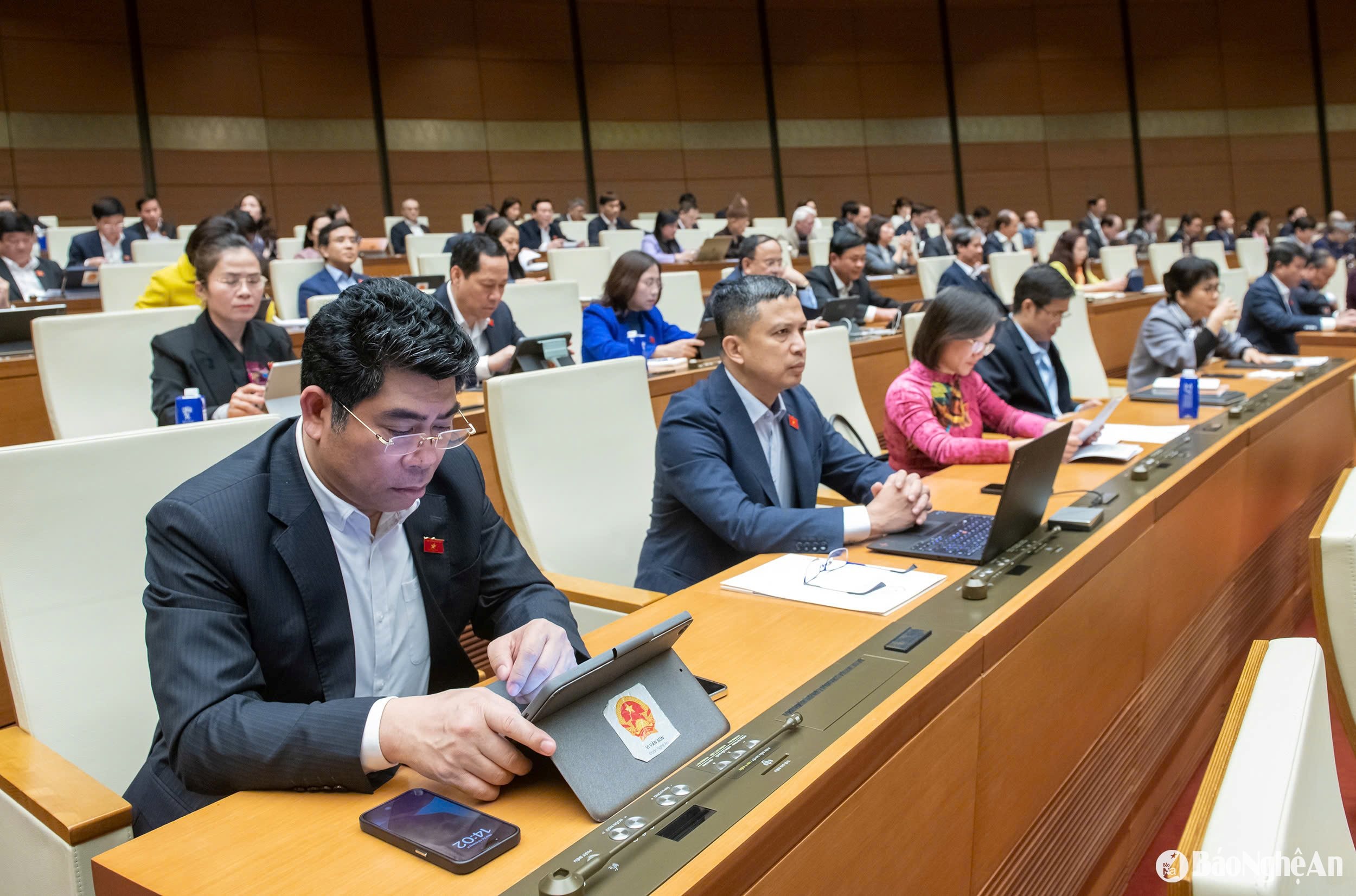
Basically inherit the provisions on the organizational structure of the People's Committee according to the provisions of the current Law and assign the Government to stipulate the framework of the number of Vice Chairmen of the People's Committee at all levels, the number of specialized agencies under the People's Committee at the provincial and district levels; The People's Committee at the local government level operates under a collective regime combined with the personal responsibility of the Chairman of the People's Committee and each member of the People's Committee; Clearly stipulate the tasks of the People's Committee that must be discussed and decided collectively; the tasks and powers of the People's Committee that are authorized to the Chairman of the People's Committee to perform; Regulations in the direction of expanding the tasks and powers of the Chairman of the People's Committee.
On the same afternoon, the National Assembly listened to the draft Resolution regulating the handling of a number of issues related to the reorganization of the state apparatus and discussed in the hall the draft Law amending and supplementing a number of articles of the Law on the Organization of the National Assembly.
